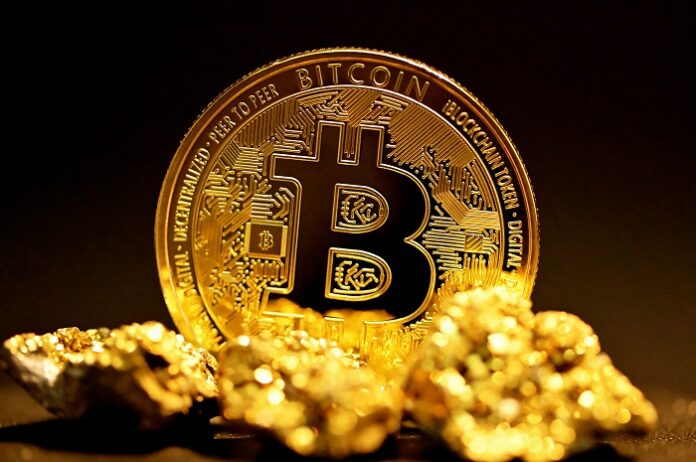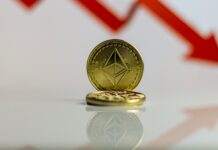In an era where inflation has surged to heights unseen for decades, the quest for a reliable hedge against the diminishing purchasing power of money has become a priority for investors. Traditionally, gold has been the sanctuary for those looking to safeguard their wealth against the ravages of inflation.
However, the digital age has introduced a new contender in the arena of financial security: BITCOIN. This brings you to an important question: Between gold and Bitcoin, which serves as a more effective shield against inflation?
To understand the relative merits of gold and Bitcoin as inflation hedges, it’s crucial to dissect the issue from multiple angles, including their historical performance, effectiveness during inflationary times, accessibility for investors, and other factors driving their demand.
To understand the relative merits of gold and Bitcoin as inflation hedges, it’s crucial to dissect the issue from multiple angles, including their historical performance, effectiveness during inflationary times, accessibility for investors, and other factors driving their demand.
Moreover, for investors aiming to enrich their portfolios with a mix of assets, acquiring knowledge on how to invest in crypto presents an advantageous complement to conventional inflation safeguards such as gold.
What Is the Historical Performance of Gold and Bitcoin?
Gold’s reputation as a steadfast protector of wealth is well-established and spans thousands of years. Its ability to maintain value over time is unparalleled, making it a cornerstone for those looking to preserve their purchasing power over long periods. Gold is the most reliable inflation hedge available, a sentiment echoed by many financial experts.
On the other hand, Bitcoin, with just over a decade, lacks the extensive historical record that gold boasts. This relatively short history leaves many experts questioning Bitcoin’s long-term viability as a store of value. The looming potential of central bank digital currencies and other cryptocurrencies poses a challenge to Bitcoin’s position as a medium of exchange, further complicating its future.
How Effective Are Gold and Bitcoin Against Inflation?
When it comes to their roles as hedges against inflation, the two assets diverge significantly. Gold’s effectiveness is supported by a wealth of historical data. Technical analysts point out that gold has proven itself as an inflation hedge, particularly during periods of high inflation.
Bitcoin’s track record, however, is less clear. Its existence has not overlapped with significant periods of inflation, leaving a gap in data that could demonstrate its potential as an inflation hedge. While some argue for Bitcoin’s theoretical potential due to its finite supply, analysts see investing in cryptocurrencies as speculative rather than strategic, given the difficulty in determining their intrinsic value using traditional financial analysis.
Both Bitcoin and gold offer relatively easy entry points for investors, with established markets and a variety of investment vehicles. Gold, however, edges out in terms of accessibility thanks to the myriad ways one can invest in it, from physical gold to exchange-traded funds (ETFs) and futures. This diversity allows investors to choose how they want to engage with gold based on their investment strategy and risk tolerance.
The introduction of spot Bitcoin ETFs has simplified access to Bitcoin for many investors, making it possible to buy and sell the cryptocurrency through familiar investment structures. However, the unique considerations of owning physical gold, such as storage and security, present a different set of challenges and costs that investors must consider.
Beyond Inflation Hedging, What Drives the Demand for Gold and Bitcoin?
The demand for both gold and Bitcoin extends beyond their potential as inflation hedges. Gold’s utility is manifold, finding applications in industries, jewelry, and medical technologies, in addition to being a reserve asset for central banks. This multifaceted demand underpins gold’s value and contributes to its stability as an investment.
Bitcoin’s value proposition, in contrast, is more narrowly defined by its utility in transactions and its speculative appeal. If Bitcoin’s acceptance as a medium of exchange falters or if the speculative interest wanes, its value could be adversely affected.
Gold and Bitcoin: The Verdict
While gold has a proven track record as an effective hedge against inflation, the verdict on Bitcoin is less clear. The digital currency’s short history and speculative nature make it a less reliable choice for those looking to protect their wealth from inflation. However, the evolving nature of financial markets and the increasing digitization of assets suggest that Bitcoin’s role may continue to develop.
Final Thoughts
As investors navigate the complexities of modern financial markets, the choice between gold and Bitcoin is emblematic of a broader consideration: the balance between traditional assets with established histories and emerging digital assets that offer new possibilities and risks.
For those considering gold or Bitcoin as part of their investment strategy, it’s essential to weigh these factors carefully. Gold offers a sense of security and stability that has withstood the test of time, making it a cornerstone for conservative investment strategies aimed at preserving wealth. Bitcoin, with its potential for high returns and role in the digital economy, presents an opportunity for those willing to embrace its volatility in pursuit of growth.
Ultimately, the decision between gold and Bitcoin as an inflation hedge may not be an either/or proposition but rather a question of how each can fit into a diversified investment portfolio tailored to individual risk tolerance, investment horizon, and financial goals. As the landscape of investment continues to evolve, the ability to adapt and incorporate a mix of traditional and digital assets will be key to navigating the challenges and opportunities of inflation hedging in the 21st century.





